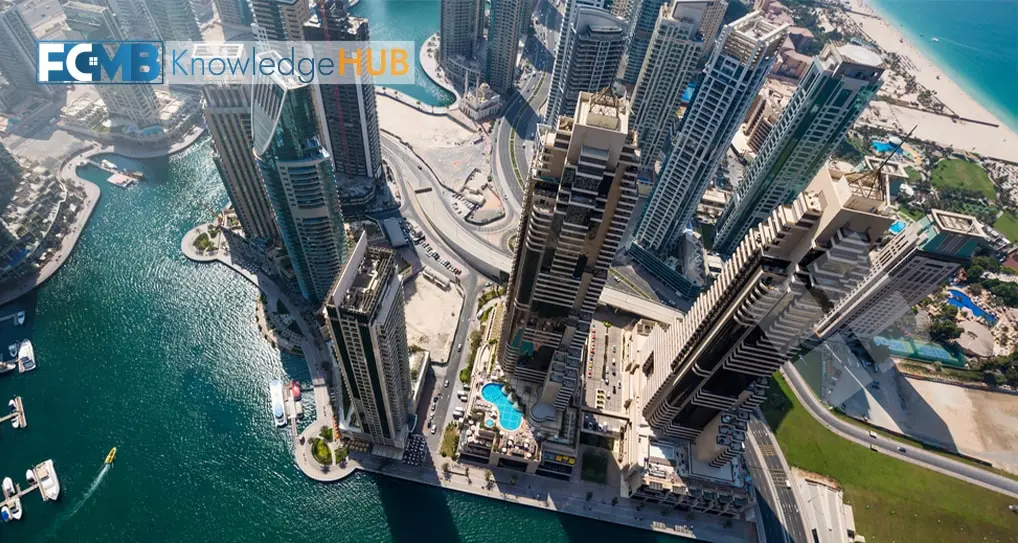
Shop for your mortgage like a pro
The journey to your new home is not a simple stroll. Looking for a perfect property and arranging your financing is a time-intensive process. Even if you are well-versed in the art of finance, getting a mortgage can be a tedious task. You will be required to fulfill many requirements and submit many documents to get approved for a home loan. Furthermore, during the mortgage application process, you will be hit by a barrage of new mortgage-related terms that add “Comp” to the lexicon of financing. At FCMB we understand that not all individuals are well versed in the lingo used in the mortgage industry, so we have put together a list of 17 must-know mortgage-related terms essential in Dubai/UAE. This list will allow you to hit the ground running like a pro in your financing journey.
Pre-qualification is derived from basic financial information collected from a prospective mortgage applicant. Most of the time it is an estimate of how much an applicant can borrow. Pre-qualifications are only an estimation and should not be mistaken for Pre-approvals because a pre-qualification is not in any form a confirmation or guarantee of being able to borrow funds. A prequalification calculation with maximum eligibility can be obtained from a bank or broker.
After checking the creditworthiness and ability to pay off a mortgage loan, the bank issues this document. It indicates a strong likeliness of the bank to approve the applicant’s mortgage application. Pre-approvals can be obtained without any fees most of the time and are generally valid for 30-90days. The pre-approval will clearly state the remaining requirements to be fulfilled to issue the Final Offer Letter (FOL). Once a pre-approval letter is expired the applicant will need to resubmit updated documents to revalidate the pre-approval, furthermore, there may be associated revalidation charges. Pre-approval is a valuable tool to plan your home purchase, some sellers may require a pre-approval to sign an MOU if the buyer is seeking financing to buy a property.
It is the value of the loan as a percentage of the value of the property.
LTV =(Loan Value/Property Value)*100
In mortgage and banking industries, FTV and LTV are used interchangeably.
This is the term used in Islamic banking similar to LTV. It is the value of the finance requested by a home buyer from the bank as a percentage of property value.
FTV = (Finance amount requested by the prospective home buyer from the bank / Property Value)*100
In mortgage and banking industries, FTV and LTV are used interchangeably.
Up-front payment from the buyer for a portion of the purchase price of the property. The down payment reduces the LTV/FTV of the loan against the property. The down payment can not be funded through means of a loan or credit line, it can only be funded through the borrower's assets only.
The initial time frame for paying off a mortgage loan. The maximum tenor in the UAE is 25 years, and the minimum tenor is 3 years. Furthermore, the tenor is capped at 65 years of age for a salaried applicant and 70 years for a self-employed individual or a maximum 25-year tenor, whichever comes first. E.g. 55-year-old salaried person can get a maximum tenor of 10 years.
Emirates Interbank Offered Rate. This is an average of interest rates banks in the UAE lend to each other. The EIBOR is the benchmark used by many financial institutions in the UAE to set rates for retail loan products.
A fixed-rate mortgage is a loan where a specific interest rate is applied for a portion of the loan tenor. In the UAE it is common to see fixed-rate mortgages where interest rates are fixed for 1-10years. After the fixed-rate tenor of the loan expires a variable rate formula will kick in. E.g. 2.5% fixed for 3 years, thereafter 2.1%+3Month EIBOR. Essentially a fixed-rate mortgage in the UAE is a hybrid rate loan with an initial fixed-rate period followed by a variable rate period.
A variable-rate mortgage is a loan where the loan's interest rate is variable from day one. The value of the variable rate is determined by referencing a benchmark rate and a bank mark-up rate. In the UAE EIBOR is used as a benchmark to determine the variable rate. E.g. Variable rate = 3Month EIBOR rate + 2% bank mark up. I.e. if the 3Month EIBOR rate is 0.4% then the variable rate will be 2.4%. Usually, the variable rate is determined by referencing the benchmark rate on the day the repayment is calculated.
Find the best rates on offer right now using FCMB's Smart Rate Finder
These are mortgage deals based on interest rates. A bank lends a borrower money to purchase a property. The bank will charge an agreed-upon interest rate as profit. The bank will charge an equated monthly installment for the principle and interest.
Islamic mortgages are not interest-based. It is based on the concept derived from Islamic principles of interest-free lending, where, the bank buys a property on behalf of the client and sells the property back to the client for a profit. Monthly installments payments are made by the client to buy the collateral property from the bank.
These are costs associated when a title of a property is transferred from a seller to the buyer, in the UAE closing costs usually include a land department transfer fee, trustee fee, real estate agency commission, property valuation fee, mortgage registration/release fee, and bank processing fee. Closing costs can total up to 5-7% of the property value.
The option of including associated fees in the principal amount borrowed. The associated fees include DLD title transfer fee (4% of property purchase price + admin fees up to AED 580), Real estate agent commission (2%), DLD mortgage registration fees (0.25% of loan amount + AED290). Depending on the first or second property purchase and residential status the associated fee financing will differ, please contact us to find the exact values.
Life insurance is mandatory to obtain a mortgage in the UAE. In the event that a borrower passes away or is permanently disabled the life insurance will kick in to cover the outstanding balance of the mortgage.
Also known as fire insurance in Islamic banking, it is a property insurance policy that covers losses or damages to a residence. Depending on the terms and conditions, the policy may cover repair/replacement costs for damages caused by ill intent or natural causes. There are possibilities to extend property insurance to cover household belongings from theft as well.
After the evaluation of the property is completed and all pre-approval requirements are met, this document is issued by the bank. The FOL includes all binding terms & conditions presented by the bank to the borrower in order to complete the mortgage loan. Subject to fulfilling all conditions set by the bank the borrower signs the FOL and associated mortgage contracts and the case proceeds to the disbursement of funds.
This is when the bank pays the relevant beneficiary for the loan amount agreed upon. Most of the time disbursed funds are credited to the loan applicant's bank account and are earmarked for paying a developer or seller of a property. In some cases, the disbursed loan funds are directly drawn in favor of a developer or seller via a manager's check.
Now that you know the must-know jargon of the mortgage sphere you can shop like a pro for the best mortgage deal.
About the Author
This blog post was authored by FCMB Team & Zamran Zaharan.












